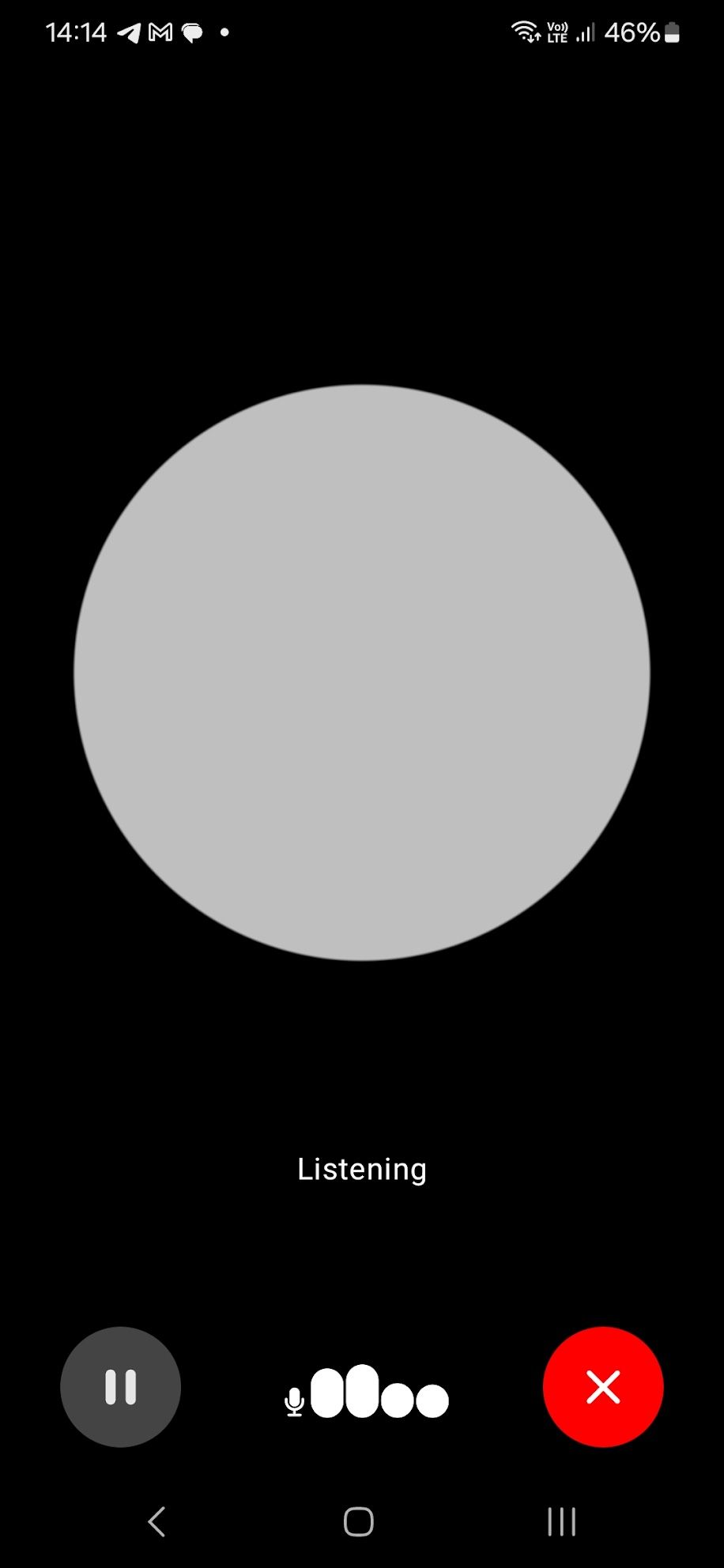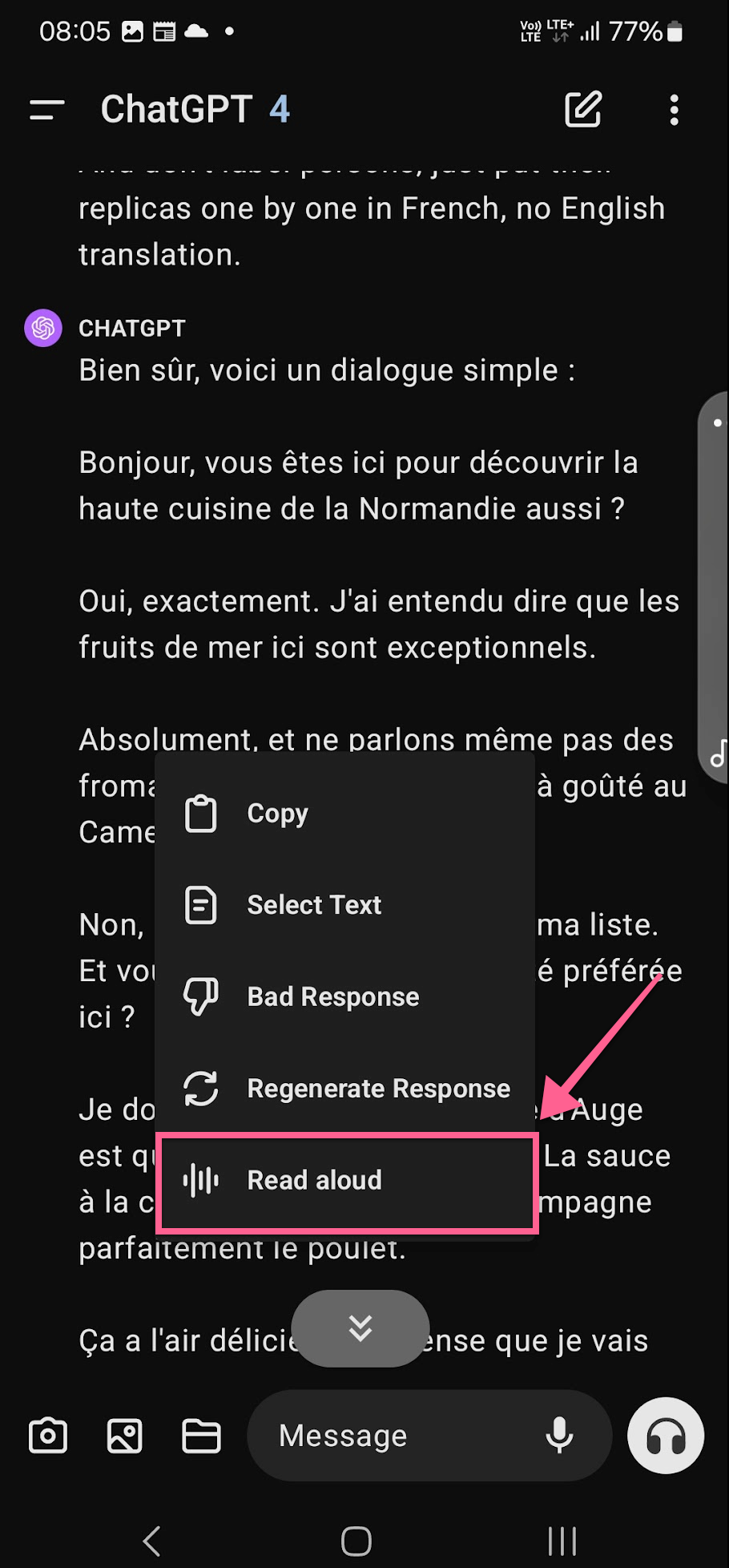Learning French with ChatGPT
Table of Contents
Duolingo and flashcards get boring quickly, so lately I've been learning French with ChatGPT.
Observation #1: ChatGPT for Android got a very good speech-to-text and text-to-speech engine based on Whisper, since fall 2023. It understands what you say well and intones its phrases nicely when it speaks. You can have real conversations with it on any topic. Of course, it's still far from being a human tutor in terms of analyzing your pronunciation, because what essentially reaches ChatGPT cloud is not the audio stream of your words, but just recognized text (with some glitches if you consider the sloppy pronunciation of an average beginner).

The conversion from speech to text happens on the local device. (By the way, I see great potential here for neural networks that analyze the audio stream itself and compare it to reference pronunciation - check out https://getfluently.app from fellow founder Yuri Rebryk, a cool idea, but so far implemented only for English language, as far as I know.)
Observation #2: ChatGPT allows you to extend your vocabulary in different industries and niches. Sure, it loses to a human tutor in not "hearing" your pronunciation, but it infinitely wins in the depth and breadth of its knowledge. Today it can give you 50 words from Harry Potter, and tomorrow it can act out a dialogue where you go to a restaurant and discuss the nuances of pairing white wine with oysters with the french chef. Or an angry landlord shows up because you haven't paid rent for 3 months. The possibilities are endless.
Here's an example of my basic prompt #1:
I study French. My level is A2. Please create a simple dialogue happening in a French restaurant between two chefs who argue on ____. Don't use person labels.
(The last phrase is so that each line doesn't have a person label prefix, which is distracting in the audio stream).
It's worth noting that ChatGPT can switch languages decently even within one line, BUT only if that line is long enough. So it can't pronounce a list of French words with their English translations well - it constantly mixes them up, trying to pronounce the words in a French or English manner - it's fine for reading, but almost impossible to listen to. But if you ask it to repeat each dialog line in English right after the French, then it sounds decent.
Prompt #2:
I study French. My level is A2. Please create a simple dialogue happening in a French restaurant. Add an English translation after each phrase. Don't use person labels.
ChatGPT can re-read a message out loud, even if you're already in text mode reading. There's a "Read aloud" option in the context menu for that.

If I encounter an expression I don't understand, I copy that snippet into the Yandex Translate app, translate it there, and listen to it separately. (Yandex is better than Google Translate in that it can pronounce even long lines, has fewer glitches, and provides more usage examples).

After going through the whole dialogue, I dictate a new prompt in the same conversation with ChatGPT (it's already in context):
Prompt #3
Now let's replicate this dialog, I will answer your questions one by one.
And I try to reproduce the phrases and words I just learned. The dialog inevitably deviates from the original version, making it even more exciting and challenging.
The main advantage of this approach over watching YouTube is that the vocabulary is actively used by me, not just passively consumed, bringing it closer in usefulness to conversation clubs - except a conversation club meets once a week if I can make it, while ChatGPT is available at any moment, like during a walk.